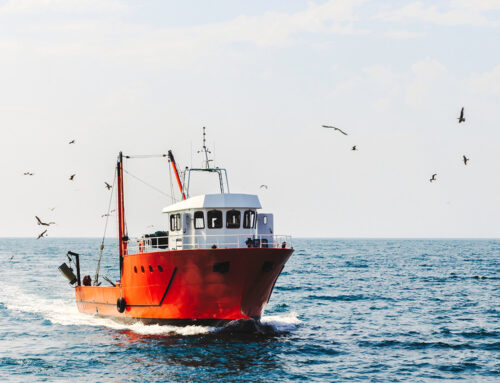According to the 2015 Living Blue Planet study from WWF, climate change is causing the ocean to change more rapidly than at any other point in millions of years. Climate change is also projected to increase pressure on all livelihoods and food supplies, including those in the fisheries and aquaculture sector.
Oceans have absorbed 30% of the carbon used or produced by humans and 90% of excess heat, causing ocean acidification to increase at a faster rate than any other period. This negatively impacts marine species such as shellfish, crabs, lobsters and corals by diminishing their stock and making it more difficult for them to build calcium carbonate shells.
Warming and acidifying oceans amplify the impact of other pressures such as overfishing and pollution. The increased acidity in the ocean reduces the ability of coral reefs to re-establish themselves from disturbances such as bleaching and cyclones. If the temperature continues to rise at current rates, the ocean will become too warm for coral reefs by 2050, resulting in a major disruption to at least 25% of the biodiversity in the ocean and the loss of productive fisheries. The loss of reefs as a barrier increases the exposure of coastal areas to waves and storm systems.
The loss of coastal ecosystems such as mangroves and sea grass beds increases the vulnerability of coastlines to the impacts of climate change. Many small island states could experience severe impacts that could result in the displacement of people and adaptation costs amounting to several percentage points of GDP.
Due to the fact that some species can only thrive in certain temperatures, their habitats are affected, forcing fish stock to diminish or move to different regions, having a negative impact on local fishing communities.
The rise in sea level, the melting of glaciers, ocean acidification, changes in precipitation, groundwater and river flows significantly affect coral reefs, wetlands, rivers, lakes and estuaries, requiring adaptive measures to exploit opportunities and minimise impact on fisheries.
Nearly three billion people rely on aquatic foods for their high nutritional quality. Fish and seafood contributes more than 20% or more on average per capita animal protein intake for more than 1.5 billion people, mostly from developing countries. These are also the most widely traded foodstuffs and are essential components of export earnings for poorer countries, providing food security and survival.
Sustainable fishing is essential in a time of climate change
A fish stock is sustainable when there’s sufficient data to show catch records and stock surveys. Ongoing data collection and research is important to ensure that the fishery in question can respond to the declines in fish populations by reducing the level of fishing.








